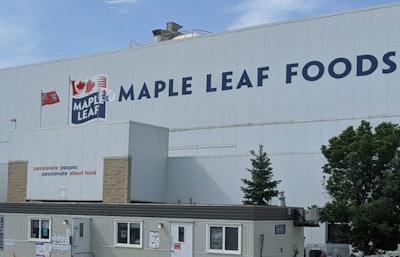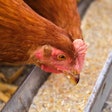
Canadian poultry and other packaged meats company, Maple Leaf Foods, released its first 2022 financial and sustainability integrated report since Curtis Frank took over as president and CEO last month. The report highlights the company’s 2022 accomplishments like production expansion projects and its sustainability and animal welfare progress.
“It’s been said that how one responds to change – not the change itself – defines success. The last three years have presented a perfect opportunity to test this theory,” said Michael H. McCain, Maple Leaf’s former CEO; the report was written before McCain stepped down. “Our world has changed markedly, and the pace of change shows no signs of letting up in this post-pandemic environment.”
Maple Leaf’s expansion projects
Maple Leaf reported over CAD 4.7 billion in total sales versus the over CAD 4.5 billion made in 2021. This is partially thanks to expanded distribution to over 18,000 U.S. stores as well as the company’s completed and ongoing production expansion projects.
The new 640,000 square-foot poultry processing plant in London, Ontario is one of the most technologically advanced facilities in the industry, according to the report, that will help meet growing consumer demand while maintaining food safety and animal and environmental welfare.
To also assist with increasing demand, the construction of a processed poultry line in Brampton, Ontario is expected to be completed by the end of the year.
Meeting sustainability and animal welfare goals
As part of Maple Leaf’s goal to become the most sustainable protein company on Earth, the company is taking part in Canada’s Sustainability-Linked Loan program which gives lower interest rates to companies that meet sustainability targets and maintain carbon neutrality.
However, sustainability-wise, Maple Leaf is not where it wants to be.
“In 2022, our environmental performance largely plateaued. In addition, a significant driver is the utility consumption during the commissioning and start-up of three new facilities/expansions located in Ontario, Manitoba and Indiana. For the majority of 2021 and 2022, these new facilities/expansions consumed utilities, but had not yet started producing products,” according to the report. “This both increased our utility consumption and negatively skewed our intensity performance.”

















